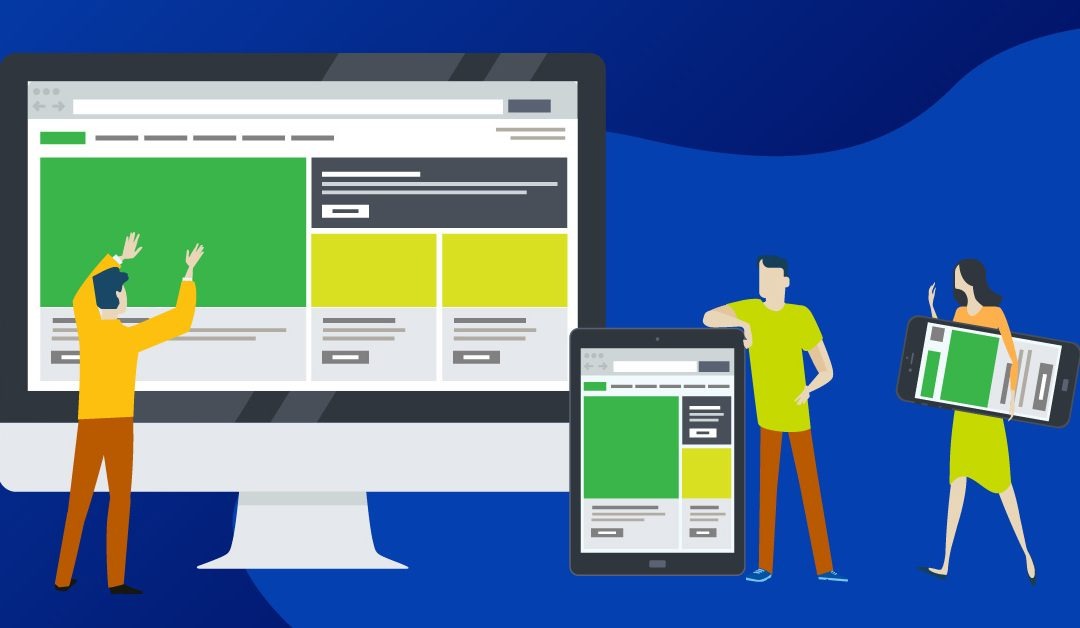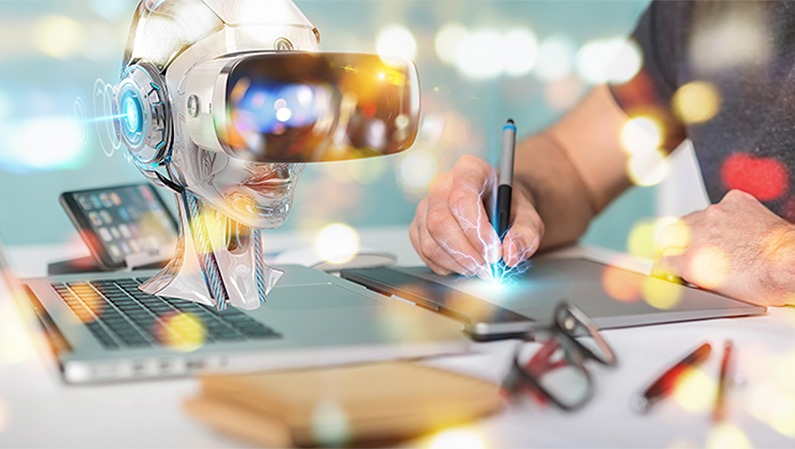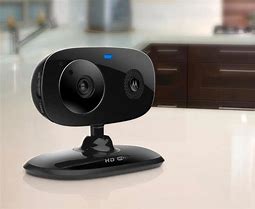
by Stewart Kendrick | 21 May, 2024 | Technology News
When to consider getting a new website
You may have a website that has been working wonderfully for you over the years but when should you consider getting a new website.
Design and usability trends evolve all the time and compared to your competitors your site may appear dated, slower to use and less relevant.
To gain minutes of a user’s attention you must clearly communicate your value proposition within 10 seconds. Research shows the average visit to a website lasts less than a minute and visitors are likely to choose to do business with a company whose website is easy to navigate that helps them to find the information or product they require quickly.
So, when should you consider making a change?
- When was your last site developed?
Research suggests that you should update your sites design and functionality every 2 to 3 years. Even if you do regular tweaks to ensure your site looks up to date sometimes it is better to do an overall upgrade to a new website rather than fitting new elements into an older site. Web design trends are constantly developing so a site can quickly become dated. Is your site visually appealing and easy to navigate. What are your competitors doing. If it looks outdated compared to competitors or contemporary design trends, it might be time for a refresh. It may also be more cost effective.
- Performance
How fast does your website load. Slow load times can deter visitors this may impact your search engine rankings. If the website is slow, it might be time to optimise or have a rebuild.
- What is your conversion rate?
Have you checked your google analytics are you getting visitors, but they are clicking away. Having new website built with SEO in mind can help you keep track.
- Out of date Software
Out of date software can lead to security breaches, visitors need to feel safe when purchasing online or leaving information. Ensure software, plug-ins and SSLs are up to date.
- Functionality
More people now search from mobile devices Is your website user friendly across different devices.
- Staying relevant
Have you launched new products or is the content inconsistent across the site. Does your current website’s design and functionality align with your business goals? If your business has evolved or if you wish to target a new audience, you might need a new website to better reflect your current objectives.
- Branding
Does the website reflect your brand identity. Ensuring your brand is consistent across the website and ensure marketing materials have the same colours, fonts logos, business name and design is imperative. This also applies to your social media platforms, digital and printed content, business cards and banners. This helps build visitor trust.
Considering these factors can help you determine whether it’s time to invest in a new website to better meet your needs and achieve your goals.
Interested in a new website? contact 02476 995 943 or services@adecsmaple.co.uk to get in touch.

by Stewart Kendrick | 18 Apr, 2024 | Technology News
The rise of Artificial Intelligence (AI) has sent ripples through every industry, and the creative sector is no exception. From music composition to ad copywriting and image generation and manipulation, AI is shaking things up. But should creatives be reaching for their paintbrushes or preparing for their P45s? Let’s explore the two sides of the AI coin and how agencies are embracing it and some of the tools available.
The Power of AI for Creatives
On the positive side, AI offers a treasure trove of benefits for creatives. Here are a few:
- Enhanced Workflow: Repetitive tasks like image editing and content tagging can be automated by AI, freeing up valuable time for strategising and brainstorming.
- Idea Generation: AI can analyse vast amounts of data to identify patterns and trends, sparking new creative concepts and fuelling innovation.
- Personalised Experiences: AI allows for content to be tailored to individual users, leading to more engaging and effective marketing campaigns.
Not a Threat, But a Teammate
While some fear AI replacing human creativity, the reality is far more collaborative. According to a Deloitte 2022 report, 94% of business leaders agreed that AI will be important for organisations in the coming years, with 79% of them expected to deploy 3 or more AI apps with a year. Leading agencies are viewing AI as a powerful teammate, not a competitor. For instance, agencies like Accenture are using AI to personalise ad campaigns and generate content variations at scale. Whilst McCann uses IBM Watson to analyse customer sentiment and personalise ad campaigns. AKQA has partnered with Google’s DeepMind to create an AI “music video director” that generates visuals based on music.
Should Creatives Embrace AI?
Absolutely! AI is not here to replace human creativity; it’s here to augment it. By viewing AI as a powerful tool, creatives can unlock new possibilities and streamline their workflow.
*and is a great help when you get creative block!
Taking the Plunge: AI Tools for Creatives
There’s a whole wealth of AI-powered apps and software available to creatives today. Here are some popular examples:
- Copywriting: AI-powered copywriting tools like ShortlyAI and Rytr can generate content ideas, write headlines, and craft different writing styles.
- Music Composition: Amper Music and Jukebox are just a few AI tools that can compose original music based on genre, mood, and other parameters.
- Graphic Design: AI design tools like Canva and Adobe Spark offer pre-designed templates and AI-powered features to streamline the design process.
The Rise of AI Web Builders and the Adobe’s AI products
A fascinating development is the emergence of AI-powered web builders. These tools allow users with no coding experience to create professional-looking websites using drag-and-drop interfaces and AI-powered design suggestions.
However, Adobe is at the forefront of AI integration in creative software. Photoshop’s “Content Aware Fillâ€, which is now available in Illustrator and Premiere Pro’s “Auto Reframe” are just a few examples of how AI is already enhancing the Adobe experience.
Embrace the Future
The future of the creative industry is likely to be a blend of human ingenuity and AI’s computational power. By embracing AI as a tool and not a threat, creatives can unlock new possibilities, streamline workflows, and ultimately produce more impactful work. So, the answer is clear: don’t be afraid of AI. Be excited about the creative potential it unlocks!

by Pritti Bhabra | 10 Mar, 2020 | General News, Technology News
Millions of people around the world have been told to work from home in a bid to slow the spread of Covid-19. Companies such as Apple and Google have actively encouraged employees to feel free to work remotely – if the job allows it.
Fortunately there are now many tools and services available to help employees perform their roles effectively from home. Communication is crucial, which is why remote meeting services are in high demand. Videoconferencing services, such as Webex and Rival Zoom, have upgraded their free service in response to the surge in demand. Some now include a longer free-day trial, while the maximum number of users has also been increased.
Those new to working from home will be presenting great opportunities for hackers to steal sensitive information or commit online fraud. To keep information secure most companies will use a virtual private network (VPN) to create an encrypted connection from the user’s computer to their company IT system. However, even businesses with a quality VPN may need to buy more user licenses or improve the server capacity for everyone to use it at once. Some prefer to control work computers from home using remote desktop software. You might even want to use both bits of tech, which would provide a secure way to access your work computer.
It is important that you check that you have a secure and reliable internet connection. If not, you may need to upgrade, or invest in a mobile hotspot or router.
Anyone who collaborates with colleagues in different locations has probably used documents shared over the internet. Slack, for example, is a secure instant messaging platform that offers file sharing and video calls and wants “to replace email”. It has around ten million users, and is said to be a great way of keeping in touch with everyone when you are working remotely. (Other options include Microsoft’s Teams platform)
But what if you find working at home distracting? Making snacks, playing with pets and even household chores might be more appealing than your paid work. Is so, then Focusmate will provide an “accountability partner”. That’s another home worker who keeps an eye on you while you are at your desk.
You connect the video cameras on your computers together at the start of the session, and get to work. There’s no sanction if you go and watch TV halfway through, except the mild disapproval of a relative stranger – but the company claims that its customers report reduced procrastination. Social pressure, it argues, it one of the most powerful ways to motivate yourself.
www.bbc.co.uk/technews (10th March)
If you need any advice or guidance on what may help you get the best out of working safely and effectively from home, please do not hesitate to give us a call on 024 7699 5930 here at ADECS-Maple.

by Pritti Bhabra | 3 Mar, 2020 | General News, Technology News
Twitter has told its employees to work from home to help stop the spread of the coronavirus. It is mandatory for staff in Hong Kong, Japan, and South Korea to work remotely, but they said they were ‘strongly encouraging’ all of its 5,000 employees world wide to not come into work. This comes a day after the company banned all non-essential business travel and events for its workers.
The post also highlighted that Twitter has been developing ways to work from home for some time: “While this is a big change for us, we have already been moving towards a more distributed workforce that’s increasingly remote. We’re a global service and we’re committed to enabling anyone, anywhere to work at Twitter.” Twitter’s Chief Executive Jack Dorsey has long-supported remote working and in November announced plans to live in Africa for up to six months of this year.
The move is similar to measures put in place by many companies in Asia as the virus sweeps the region, but goes further than most big American businesses as they respond to the outbreak.
www.bbc.co.uk/technews (3rd March)

by Pritti Bhabra | 3 Mar, 2020 | General News, Technology News
Security chiefs have warned that smart cameras and baby monitors can be watched by criminals over the internet by default. The National Cyber Security Centre (NCSC) is advising people to change the settings after buying them. Easy-to-guess default passwords might let a hacker secretly observe a home through connected devices, it said. There are many examples of devices being accessed without permission.
The new guidance for owners of smart cameras suggests the following steps – changing the default password, keeping the camera’s software, sometimes called firmware, updated, and switching off features that let you check the cameras remotely, if you don’t need or use it.
As connected devices move into people’s homes and everyday lives, cyber-security risks are becoming very personal, with challenges in protecting people’s data and privacy. Companies making these devices often try to make them cheap and fast to capture the new market – and not much though is given to security. The problem is leading towards not just more warnings such as this one, but also new mandate security standards.
www.bbc.co.uk/technews (3rd March)

by Pritti Bhabra | 21 Feb, 2020 | Technology News
The facilities company, ISS World, has been hit by a cyber-attack. ISS provides cleaning, catering, security and other services to companies in the UK and elsewhere, and has half a million employees worldwide. Its websites have been down since the 17th of February, with 43,000 staff at London’s Canary Wharf and its Weybridge HQ in Surrey with still no email. ISS said it was a malware attack, but declined to specify further. The company said that many of its global employees do not use its computers in their daily work – but the impact is affecting the whole company. ISS said it had disabled access to its IT services as a precautionary measure when it noticed the attack, isolating the incident.
Ransomware has become the biggest challenge in cyber-security. The frequency of attacks makes it impossible to report on every incident. Hackers are now ignoring the individual victims at home and are now concentrating their resources and time on bigger targets for bigger rewards. Ransom payments are rising, with some hacker gangs successfully extorting millions from victims. The issue is a big concern for law enforcement agencies such as Europol and the FBI, which are constantly urging people not to pay hackers as it fuels the industry.
www.bbc.co.uk/technews (20th February)






